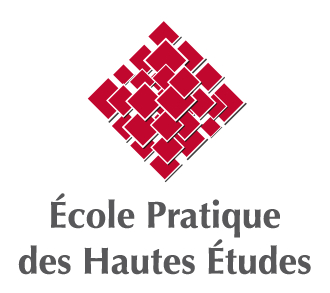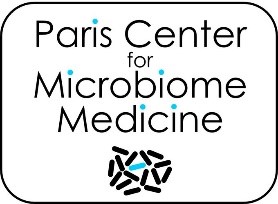
Sorbonne Université - Faculty of medicine - Saint-Antoine Site – 6th floor
27, rue Chaligny - 75571 Paris cedex 12 - France

Our team's main objective is to decipher the mechanisms underlying gut microbiota-host interactions in physiology and various pathologies, in particular those associated with intestinal inflammation, in order to develop Biomarkers and innovative treatments. Co-directed by Philippe Seksik and Harry Sokol, our team is working on several aspects of the pathogenesis of chronic inflammatory bowel diseases (IBD), diseases affecting up to 1% of the population. The research projects developed in the laboratory rely on complementary expertise such as i) medical knowledge of IBD (natural history, therapeutic strategies, clinical trials of fecal microbiota transplantation, biological collections), ii) ecology of the gut microbiome (analysis of the microbiome by sequencing, interactions, resilience, targeted metabolomics), iii) physiology of intestinal epithelial cells (barrier function and signaling pathways) iv) analysis of hydrophobic molecules in the intestinal environment (mass spectrometry) and v) microorganism-host immunity interaction. These cross-disciplinary skills at the intersection of cell biology, immunology, microbiology, and medical practice allow for large-scale studies from the patient’s bedside to the bench and back again, eventually leading to the discovery of new therapeutic targets and improved patient care.
Axis “Immunology and Inflammation”
Dialogue between gut microbiota and host immunity
Leader: H. Sokol (ORCID 0000-0002-2914-1822)
Members: N. Rolhion (ORCID 0000-0002-2946-4808), S. Georgin Lavialle (ORCID 0000-0001-6668-8854), A. Lamazière (ORCID 0000-0003-0813-7370), M. Bredon, R. Formiga, C. Danne, Q. Li, I. Elhani (ORCID 0000-0002-9767-2262), L. Brot, L. Creusot, S. Amouyal, I. Alonso
The gastrointestinal tract is a complex environment in which host epithelial and immune cells and a wide range of microorganisms coexist. The gut microbiota is composed of billions of bacteria, remarkably well tolerated by the host, while pathogenic microorganisms are detected and eliminated by the immune system. The mechanisms involved in the distinction between deleterious and symbiotic microorganisms remain unclear. In certain cases, the tolerance towards the gut microbiota is disrupted, leading to an inappropriate immune response and intestinal or extra-intestinal inflammation. This is true for IBD, whose exact pathogenesis is still unknown but involves a deregulated immune response to the gut microbiota. Studies by different teams, including ours, have shown that (i) the composition of the gut microbiota is altered in IBD patients and (ii) the microbiota of IBD patients exhibits functional defects, characterized by a defect in the metabolism of bile acids, certain short-chain fatty acids and tryptophan, which are the three main classes of molecules involved in the dialogue between the microbiota and the host that have so far been described. At the same time, genetic studies have identified several IBD susceptibility loci in genes involved in the interaction with microorganisms.
Our current work focuses on the role of microbial and cellular metabolism in host-microbiota interactions, with a particular interest in tryptophan and energy metabolism and their alterations in IBD.
Intestinal microbiota and autoinflammatory diseases
Leader: S. Georgin Lavialle (ORCID 0000-0001-6668-8854)
Members : H. Sokol (ORCID 0000-0002-2914-1822), N. Rolhion (ORCID 0000-0002-2946-4808), A. Lamazière (ORCID 0000-0003-0813-7370), I. Elhani (ORCID 0000-0002-9767-2262), M. Bredon, L. Creusot, I. Alonso
Besides IBD, some monogenic diseases of innate immunity, the autoinflammatory diseases (AID), lead to uncontrolled systemic inflammatory phenomena with the intestine being one of the main targets. Patients with AID display a heterogeneous phenotypic expression in which the gut microbiota could play a role. Work from the laboratory has shown dysbiosis in patients with familial Mediterranean fever, the most common type of AID. In conjunction with the cohort of patients of the French national reference center for AID (CeRéMAIA), a specific study will focus on these monogenic diseases of digestive expression. Therefore, we intend to decipher the mechanisms involved in the complex dialogue between the gut microbiota and the healthy host, and its alterations involved in human pathologies such as IBD or AID to identify new therapeutic targets.
Axis “Biomolecules and Barriers”
Quorum sensing and IBD
Person in charge : P. Seksik (ORCID 0000-0003-3596-9893),
Members: JP. Grill (ORCID 0000-0001-9434-3706), S. Thenet (ORCID 0000-0002-0336-2942), L. Brot, V. Carrière (ORCID 0000-0002-6263-0847), Raphaëlle Liquard
The pathophysiology of IBD is characterized by chronic inflammation and intestinal dysbiosis. We are interested in Quorum Sensing, i.e. the molecules that bacteria use to communicate with each other to coordinate their actions. More specifically, we are investigating the type 1 (AI-1) self-inducing QS molecules: the N-acyl-homoserine lactones (AHLs). Since their presence in an ecosystem depends on the size of the bacterial group secreting them, these molecules seem particularly relevant to study in the intestinal ecosystem context and dysbiosis situations, especially since these molecules play a role on bacteria but also host eukaryotic cells (epithelial cells and immune cells). We identified several AHLs in the human intestinal ecosystem and focused on a predominant AHL, never described before, the 3-oxo-C12:2. This AHL is decreased in IBD patients and exerts anti-inflammatory effects on the host, as well as protective effects on tight junctions, which are major players of the barrier function. We aim to identify and characterize other AHLs capable of targeting both the inflammation and microbial imbalance observed in IBD. Such knowledge will allow a better understanding of the host-microbiota dialogue at play during IBD and help the design of targeted therapeutic interventions aimed at controlling intestinal inflammation and microbial composition to restore intestinal balance.
Intestinal epithelial and endothelial barriers and microbiota
Leaders: S. Thenet (ORCID 0000-0002-0336-2942), V. Carrière (ORCID 0000-0002-6263-0847), S. Demignot (ORCID 0000-0001-7149-1992), D. Garcia-Weber (ORCID 0000-0001-9170-5695)
Members: S. Sheikh, L. Savoure
The intestinal barrier function is disrupted in many chronic diseases affecting the digestive tract, such as IBD, but also in extra-digestive pathologies such as metabolic diseases. This disturbance is manifested in particular by an increase in paracellular permeability, linked to a deregulation of intercellular junctions. Other important players of the intestinal barrier function - the mucus layer, the secretion of antimicrobial peptides and immunoglobulin A, and the dialogue with the immune cells of the intestinal mucosa - may also be impaired. In addition, the barrier function of various vascular endothelia, the innermost layers of the blood vessels, is also altered, which impacts the inflammatory phenomenon in other organs distant from the intestine. The general objective of our work is therefore to understand the mechanisms of regulation of epithelial and endothelial barrier functions in response to changes in the cellular microenvironment in physiological or pathological situations. We are particularly interested in certain metabolites produced or processed by the microbiota, such as quorum sensing molecules (AHL), short-chain fatty acids, certain tryptophan-derived metabolites, bile acids, and lipid digestion products. We aim to understand how these signals perceived by epithelial and endothelial cells at their apical pole modulate the response to an inflammatory environment. Our cell biology and physiology approaches combine different models such as cell lines mimicking enterocyte polarization and differentiation, intestinal organoids, primary human endothelial cells, as well as mouse models and human samples.
Axis “Microbiology”
Bacteriophage-bacteria-gut interactions
Leader: L. De Sordi (ORCID 0000-0002-3785-550X)
Members : JP. Grill (ORCID 0000-0001-9434-3706), S. Thenet (ORCID 0000-0002-0336-2942), V. Carrière (ORCID 0000-0002-6263-0847) C. Meynard-Doumenc, C. Douadi, Q. Lamy-Bersnier, L. Brot
Bacteriophages, viruses that infect bacteria, are among the most plentiful entities in the gut microbiota. Although bacteriophages have been known for over 100 years, their role in this complex ecosystem remains largely unexplored. However, variations in abundance and diversity of bacteriophages have been highlighted in IBD, a condition characterized by microbial imbalance.
Our group is attempting to understand the role of intestinal bacteriophages in the balance of the microbiota and their interactions with bacteria and the intestinal barrier in an inflammatory context. Our approach encompasses various aspects ranging from ecology to physiology to population genomics. By studying in vitro cell models, mouse models, and clinical samples from IBD patients, we aim to decipher the triple interaction between bacteriophages, bacteria, and host.
Microbial interactions and human microbiota culture
Leader: N. Rolhion (ORCID 0000-0002-2946-4808)
Members: H. Sokol (ORCID 0000-0002-2914-1822), JP. Grill (ORCID 0000-0001-9434-3706), Huang Z, Hu Y, , L. Brot, L. Creusot, I. Alonso
The combined analysis of the microbiota of hundreds of individuals highlights the co-abundance or, on the contrary, the co-exclusion of some microorganisms, thus pointing to phenomena of collaboration or functional complementarity between microorganisms, or, conversely, of exclusion or competition. We aim to identify these interactions between various gut microbial communities, their roles, the molecular mechanisms governing them, and their importance in human health. To this end, we use in vitro and in vivo approaches but also an artificial human digestive tract system M-SHIME® (Mucosal-Simulator of the Human Intestinal Microbial Ecosystem), which mimics the different compartments of the digestive tract and makes it possible to work with the human microbiota (healthy subjects or patients). These functional studies will improve our understanding of the link between microbiota and human health and help us develop effective and potentially personalized therapies targeting the gut microbiota.
Axis “Metabolomics”
Leader: A. Lamazière (ORCID 0000-0003-0813-7370)
Members : T. Eguether (ORCID 0000-0003-1891-9253), S. Demignot (ORCID 0000-0001-7149-1992), P. Seksik (ORCID 0000-0003-3596-9893), A. Desmons, J. Ayala-Sanmartin, S. Chwetzoff, J. Bouvet, G. Després, S. Layani-Moreno
Our group focuses on several questions related to the fine analysis of molecules of living organisms. Using mass spectrometry approaches coupled with artificial intelligence, we study numerous metabolic pathways that allow us to answer questions related to both basic or applied research, mainly related to the metabolism of lipids (sterols, bile acids, lipid mediators, storage lipids...), amino acids, and also intermediate compounds. With the rest of the team, we are working, for example, on profiling the metabolism of microbiota in IBD. This expertise also allows us to collaborate with several teams of the CRSA in fields such as endocrinology, rheumatology, cancerology...
These lipidomic tools also help us to answer many questions about cell membrane biology, particularly the membranes of the primary cilium, a necessary organelle for cell communication that regulates certain signaling pathways. These investigations are now completed by biophysical approaches of membrane modeling.
Last but not least, as part of a cross-disciplinary collaboration led by the BioMolecules laboratory (ENS), we are studying the impact of superoxide dismutase mimics, designed by our collaborators, on inflammation-induced oxidative stress in the IBD context. The mechanisms of action are investigated using intestinal cell models and mouse models.
Hosted lab: Skin-lab
Person in charge: C. Nizard
Member: M. Moreau, A.-L. Bulteau
The Skin-Lab is an annex of the Life Sciences Department of LVMH Research. It specializes in studying the mechanisms involved in skin aging. Biochemical and metabolic analyses of 2D or 3D models are used to analyze the senescence phenomena and the impact of various environmental stressors that accelerate skin aging. These studies may lead us to discover new targets addressed by active molecules compatible with cosmetic regulations.
Highlights
2017: European Research Council (ERC) Starting Grant (H. Sokol): Gut microbiota-dependent tryptophan metabolism: role in disease pathogenesis and therapeutic target
2019: creation of the Microbiota, Intestine, and Inflammation team
2020: FRM team certification (P. Seksik): Strategy based on quorum sensing to target chronic inflammatory bowel diseases (IBD)
2022 : European Research Council (ERC) Consolidator grant (H. Sokol): Impact Of The Gut Microbiota On Host Cells Energy Metabolism: Role In Health And In Inflammatory Bowel Disease
Key words
Microbiota, gut, intestinal barrier, IBD, inflammation, metabolomic signature, autoinflammatory diseases, innate immunity
3‐oxo‐C12:2‐HSL, quorum sensing molecule from human intestinal microbiota, inhibits pro‐inflammatory pathwaysin immune cells via bitter taste receptors. Coquant G, Aguanno D, Brot L, Belloir C, Delugeard J, Roger N, Pham H-P, Briand L, Moreau M, de Sordi L, Grill J-P, Thenet S, Seksik P. Sci. Rep. 2022; 12: 9440.
Rewiring the altered tryptophan metabolism as a novel therapeutic strategy in inflammatory bowel diseases. Michaudel C, Danne C, Agus A, Magniez A, Aucouturier A, Spatz M, Lefevre A, Kirchgesner J, Rolhion N, Wang Y, Lavelle A, Galbert C, Da Costa G, Poirier M, Lapière A, Planchais J, Nádvorník P, Illes P, Oeuvray C, Creusot L, Michel ML, Benech N, Bourrier A, Nion-Larmurier I, Landman C, Richard ML, Emond P, Seksik P, Beaugerie L, Arguello RR, Moulin D, Mani S, Dvorák Z, Bermúdez-Humarán LG, Langella P, Sokol H. Gut. 2022 Oct 21:gutjnl-2022-327337. doi: 10.1136/gutjnl-2022-327337. Epub ahead of print. PMID: 36270778.
Gut microbiota-derived metabolites as key actors in inflammatory bowel disease. Lavelle A, Sokol H. Nat Rev Gastroenterol Hepatol. 2020 Apr;17(4):223-237. doi: 10.1038/s41575-019-0258-z. Epub 2020 Feb 19. PMID: 32076145.
Impaired Aryl Hydrocarbon Receptor Ligand Production by the Gut Microbiota Is a Key Factor in Metabolic Syndrome. Natividad JM, Agus A, Planchais J, Lamas B, Jarry AC, Martin R, Michel ML, Chong-Nguyen C, Roussel R, Straube M, Jegou S, McQuitty C, Le Gall M, da Costa G, Lecornet E, Michaudel C, Modoux M, Glodt J, Bridonneau C, Sovran B, Dupraz L, Bado A, Richard ML, Langella P, Hansel B, Launay JM, Xavier RJ, Duboc H, Sokol H. Cell Metab. 2018 Nov 6;28(5):737-749.e4. doi: 10.1016/j.cmet.2018.07.001. Epub 2018 Jul 26. PMID: 30057068.
Gut Microbiota Regulation of Tryptophan Metabolism in Health and Disease. Agus A, Planchais J, Sokol H. Cell Host Microbe. 2018 Jun 13;23(6):716-724. doi: 10.1016/j.chom.2018.05.003. PMID: 29902437.
CARD9 impacts colitis by altering gut microbiota metabolism of tryptophan into aryl hydrocarbon receptor ligands. Lamas B, Richard ML, Leducq V, Pham HP, Michel ML, Da Costa G, Bridonneau C, Jegou S, Hoffmann TW, Natividad JM, Brot L, Taleb S, Couturier-Maillard A, Nion-Larmurier I, Merabtene F, Seksik P, Bourrier A, Cosnes J, Ryffel B, Beaugerie L, Launay JM, Langella P, Xavier RJ, Sokol H. Nat Med. 2016; 22(6):598-605. doi: 10.1038/nm.4102.
Identification of an anti-inflammatory protein from Faecalibacterium prausnitzii, a commensal bacterium deficient in Crohn's disease. Quévrain E, Maubert MA, Michon C, Chain F, Marquant R, Tailhades J, Miquel S, Carlier L, Bermúdez-Humarán LG, Pigneur B, Lequin O, Kharrat P, Thomas G, Rainteau D, Aubry C, Breyner N, Afonso C, Lavielle S, Grill JP, Chassaing G, Chatel JM, Trugnan G, Xavier R, Langella P,Sokol H*, Seksik P*. Gut. 2016; 65(3):415-25.
Faecalibacterium prausnitzii is an anti-inflammatory commensal bacterium identified by gut microbiota analysis of Crohn's disease patients. Sokol H, Pigneur B, Watterlot L, Lakhdari O, Bermúdez-Humarán LG, Gratadoux JJ, Blugeon S, Bridonneau C, Furet JP, Corthier G, Grangette C, Vasquez N, Pochart P, Trugnan G, Thomas G, Blottière HM, Doré J, Marteau Ph, Seksik Ph, Langella Ph. Proc Natl Acad Sci U S A 2008; 105(43):16731-36.
Guardianship logo:



Other logos:





INRAE : Interactions of Commensal and Probiotic Bacteria with the Host
CeRéMAIA (French national reference center for auto-inflammatory diseases)
FHU PaCeMM (University Hospital Federation, Paris Center for Microbiome Medicine)
INSERM
Kourilsky Building
34 rue Crozatier - 75012 Paris
France
Sorbonne Université Medicine
Saint-Antoine Site
27 rue Chaligny - 75012 Paris
France
